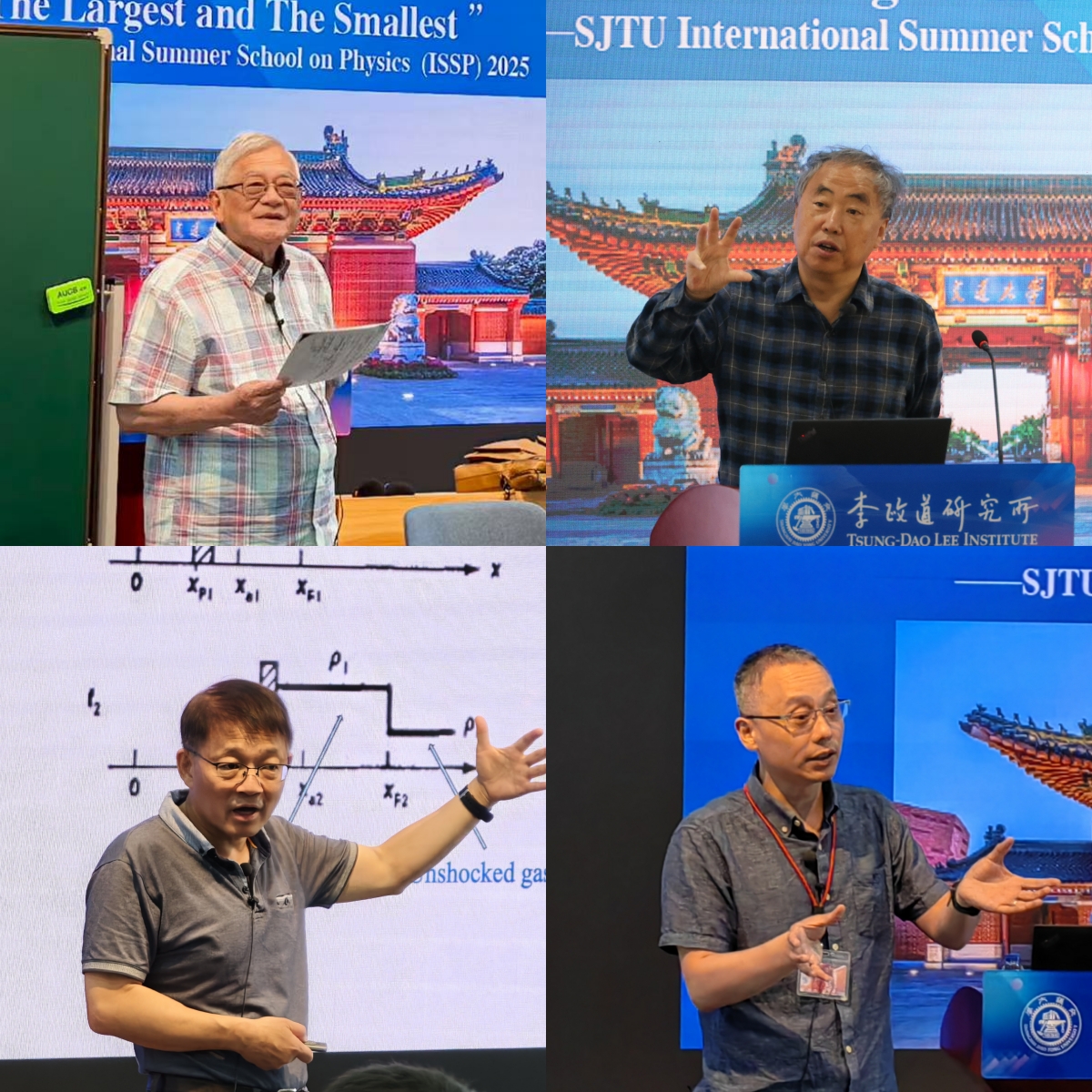The SJTU International Summer School on Physics 2025, organized by Zhiyuan College and the Tsung Dao Lee Institute (TDLI), successfully concluded on July 18. The two-week program brought together 88 students from 28 top Chinese universities and 33 outstanding students from 20 prestigious international universities, including the University of Illinois Urbana-Champaign, University College London, RWTH Aachen University, École Polytechnique, National University of Singapore, and Kyoto University.

The summer school featured four intensive courses: Quantum Field Theory by Prof. Anthony Zee (UC Santa Barbara), Astrophysics of Compact Objects, Transients and Exoplanets by Prof. Dong Lai (SJTU), Elementary Particle Detection by Prof. Jianglai Liu (SJTU), and Geometric phase in solid state physics by Prof. Qian Niu (USTC).

Beyond the core curriculum, participants engaged in complementary academic activities including interactive 'Chalk Talk' sessions with over 20 leading scientists and 13 cutting-edge lectures spanning astrophysics to quantum science, with a dedicated 'AI for Physics' forum examining artificial intelligence applications in contemporary research. The program also incorporated cultural immersion components, featuring visits to Shanghai's iconic Bund and Yu Garden that showcased the city's unique synthesis of historical tradition and modern development. These diverse experiences culminated in a closing ceremony where student representatives from Peking University, SJTU, École Polytechnique, and RWTH Aachen reflected on their interdisciplinary learning journey.
The program successfully created meaningful connections among budding physicists worldwide. Through this initiative, SJTU has reinforced its role in linking China's elite physics education with leading international institutions, cultivating valuable academic connections that will contribute to future international research partnerships.
